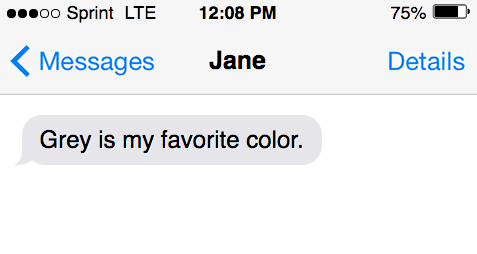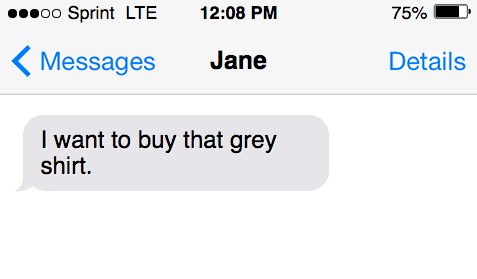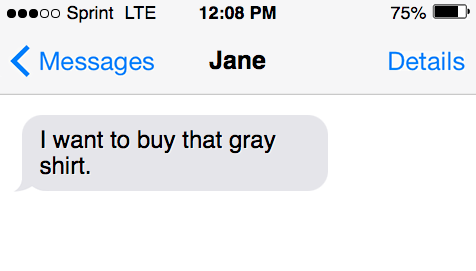We are all familiar with the shade of gray. Or should we write grey? This is a popular grammar dilemma for people around the globe. Is the correct word “gray” or is it “grey?” Which is the correct way to spell the word?
Let’s jump in to learn. This article talks about the similarities and differences between these words having the vowels “a” and “e”…
Etymology of the word “gray” or “grey”
The words “gray” and “grey” have the same pronunciation and a common origin. Both are derived from an old English word – “grǽg“.
There wasn’t standardized spelling back in the middle ages. Writers of that time started using the name of the color in their works with many variations.

That’s how spelling variations like “graye,” “greie,” and “greye” started appearing in poems and literature of those eras. Grey became the most accepted spelling of the word in Britain. And later, Americans popularized the spelling “gray” in the 1800s.
| Word / Phrase | Definition |
| Gray + Grey (adjective) /ɡrā/ | of a color intermediate between black and white, as of ashes or lead. |
| Grey Energy | grey energy is the energy hidden in a product, i.e. the amount of energy required to extract that product from nature, or to cultivate, manufacture, package and transport it. |
| Gray Code | gray codes are widely used to prevent spurious output from electromechanical switches and to facilitate error correction in digital communications such as digital terrestrial television and some cable TV systems. |
| Grey Matter | grey matter makes up the outer most layer of the brain. The white matter and grey matter are similar as they are both essential sections of both the brain as well as the spinal cord. |
How do you spell the color gray?
There is a lot of confusion around the usage of “grey” and “gray” for the color representing the shade between white and black.
Some believe that these two spellings are used for different shades of the same color. But actually, both the spellings have the same meaning and are pronounced the same.
The difference lies only in the prevalence of the spelling with “a” in American English and the one with “e” in British English. These words can replace each other in all cases except when the word is a proper noun.
| Word | Form | Example |
| Gray | Noun | The house is gray. |
| Grey | Noun | The clouds make it grey. |
| Gray | Verb | Her hair was going gray. |
| Grey | Verb | The beard started to go grey. |
| Gray | Adjective | The gray area started to grow. |
| Grey | Adjective | The grey squirrel was running around. |
Let’s learn in detail about the usage of the word “gray.”

Gray as a noun
Gray can be used as a common noun while denoting the color between black and white.
Here the word is the name of a shade. And the first letter doesn’t need to be capitalized.
Gray can be included in someone’s name or surname. In such cases, we use it as a proper noun and always capitalize the ‘G.’ For example, “Mr. Gray.”

Sentence examples
Here are sentence examples to help comprehend this further:
Gray as a common noun:
- “Gray is my favorite color.”
- “The clouds are gray.”
- “She has painted her walls gray.”
Gray as a proper noun:
- “Did you go to Mr Gray’s wedding?”
- “That guy, Gray seems like a decent person”
Gray as a verb
To describe something that is becoming gray in color. Or when someone’s hair is turning white, the word “gray” is often used in verb form. Sometimes it gets used to denote old age. For example, common idioms like, “They are going gray.”

Sentence examples
- “Peter’s hair has started to gray.”
- “The stormy weather was greying the sky.”
- “His hair has grayed over time.”
Gray as an adjective
Apart from indicating something of the color gray, on many occasions, gray is used as an adjective.
For instance, when something looks pale or lacks brightness, the word gray is used. Gray is also an adjective to describe lousy weather or old age.
Examples
Here is a list of sentences where gray is used as an adjective in different meanings.
- “I want to buy that gray shirt.” (gray color)
- “She looked gray with shock.” (looks pale)
- “The couple seems to have turned gray.” (become old)
- “I was happy when I saw the gray sky clear out.” (bad weather)
What does grey mean?
The word “Grey” has the same meaning and pronunciation as “Gray.” Apart from the vowels a and e, there is little difference between these words.
The usage of “Grey” in sentences also follows the same pattern as “Gray.” In other words, these are alternate spellings of the same word.
Are “gray” and “grey” interchangeable?
While using the word as a common noun, a verb, or an adjective, both spellings can get used interchangeably.
In all the above-stated examples, the ‘a’ in gray can be replaced by ‘e’ without causing any change in the meaning of the sentences.

For example, we can write:
- “Grey is my favorite color.”
- “Peter’s hair has started to grey.”
- “I want to buy that grey shirt.”
In these sentences, grey is used as a common noun, verb, and adjective.
And these sentences have the same meaning as they will have with the word “gray” instead of “grey.”
However, in the case of proper nouns like surnames, ‘Grey’s Anatomy’ (the series) or Greyhound (a dog breed), the ‘e’ in grey should not be replaced by ‘a.’ Spellings of such proper nouns are always kept as it is and are not supposed to be changed.
| Word | Fact |
| Gray | In Chinese culture, gray’s meaning is associated with humility, embodying a modest, unassuming nature. |
| Gray | In 1930s Europe, gray became symbolic of war and industrialization. |
How to choose the correct spelling
As such, both the spellings of the word are considered correct.
However, the usage usually depends on the form of English you are writing in or the audience you are writing for.
“Grey” is the standardized spelling in British English, and “Gray” is the accepted spelling according to American English. Therefore, use the spelling with ‘a’ while writing for an American audience.
Trick to remember which word form to use
You can relate the initial letter A in America with the A letter in gray and remember that American English uses this spelling form. On the other hand, England starts with E, and British English has accepted grey as their standardized spelling.
| Word form | Geography |
| Gray | American English |
| Grey | British English |
Special cases
Certain names have a specific spelling of grey associated with them. In such cases, changes in spelling are not allowed. This rule is followed for names like Gray Whale, Greyhound, Grey Poupon mustard, Grey Goose vodka, Earl Grey tea, etc.
The word Gray when used as a name, surname, or as the unit for absorbed radiation the spelling always stays constant.
Here are more examples of exceptions:
Proper names: Charles Grey
Dog breeds: Greyhound
Measure of energy: “Gray,” the scientific measure of energy. One gray is equal to one joule of energy radiated by the ionization of one kilogram of matter.
Lesson in review
“Gray” and “Grey” are alternate forms of spelling of a color formed by mixing black and white.
The change in spelling does not affect its meaning unless it’s a proper noun.
The spelling with ‘e’ is preferred in British English, and the one with ‘a’ is usually used in American English.
Sources
- Macmillan Dictionary : ” grey Definitions and Synonyms ”
- Prepscholar : “Grey or Gray”
- Meriam Webster: “‘Gray’ vs. ‘Grey’: What is the Difference?”
- Grammarly : “How Do You Spell the Color Gray?”
- Dictionary.com: “Grey vs. Gray”
- Reader’s Digest: “Grey vs. Gray: Which Is Correct?”
- Oxford learner’s dictionary
- Grammarist : “Gray or Grey – Are Both Correct?”
- Study : “Grey vs Gray “
- Proofread: “Spelling Tips: Gray or Grey?”
- Neuroanatomy, Gray Matter – StatPearls – NCBI Bookshelf
Inside this article
Fact checked:
Content is rigorously reviewed by a team of qualified and experienced fact checkers. Fact checkers review articles for factual accuracy, relevance, and timeliness. Learn more.
Core lessons
Glossary
- Abstract Noun
- Accusative Case
- Anecdote
- Antonym
- Active Sentence
- Adverb
- Adjective
- Allegory
- Alliteration
- Adjective Clause
- Adjective Phrase
- Ampersand
- Anastrophe
- Adverbial Clause
- Appositive Phrase
- Clause
- Compound Adjective
- Complex Sentence
- Compound Words
- Compound Predicate
- Common Noun
- Comparative Adjective
- Comparative and Superlative
- Compound Noun
- Compound Subject
- Compound Sentence
- Copular Verb
- Collective Noun
- Colloquialism
- Conciseness
- Consonance
- Conditional
- Concrete Noun
- Conjunction
- Conjugation
- Conditional Sentence
- Comma Splice
- Correlative Conjunction
- Coordinating Conjunction
- Coordinate Adjective
- Cumulative Adjective
- Dative Case
- Determiner
- Declarative Sentence
- Declarative Statement
- Direct Object Pronoun
- Direct Object
- Diction
- Diphthong
- Dangling Modifier
- Demonstrative Pronoun
- Demonstrative Adjective
- Direct Characterization
- Definite Article
- Doublespeak
- False Dilemma Fallacy
- Future Perfect Progressive
- Future Simple
- Future Perfect Continuous
- Future Perfect
- First Conditional
- Irregular Adjective
- Irregular Verb
- Imperative Sentence
- Indefinite Article
- Intransitive Verb
- Introductory Phrase
- Indefinite Pronoun
- Indirect Characterization
- Interrogative Sentence
- Intensive Pronoun
- Inanimate Object
- Indefinite Tense
- Infinitive Phrase
- Interjection
- Intensifier
- Infinitive
- Indicative Mood
- Participle
- Parallelism
- Prepositional Phrase
- Past Simple Tense
- Past Continuous Tense
- Past Perfect Tense
- Past Progressive Tense
- Present Simple Tense
- Present Perfect Tense
- Personal Pronoun
- Personification
- Persuasive Writing
- Parallel Structure
- Phrasal Verb
- Predicate Adjective
- Predicate Nominative
- Phonetic Language
- Plural Noun
- Punctuation
- Punctuation Marks
- Preposition
- Preposition of Place
- Parts of Speech
- Possessive Adjective
- Possessive Determiner
- Possessive Case
- Possessive Noun
- Proper Adjective
- Proper Noun
- Present Participle
- Prefix
- Predicate



